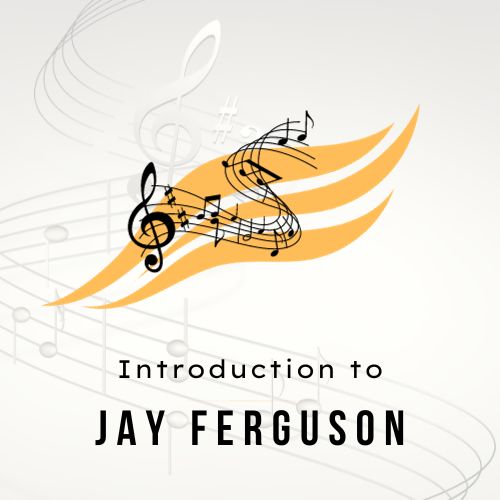Who is Jay Ferguson?
Jay Ferguson is an American rock/pop singer and musician best known for his association with Spirit and Jo Jo Gunne, as well as his solo hit “Thunder Island” in the late 1970s. The musically-inclined California native started his career with Spirit when the band was formed in the mid-1960s, once dubbing themselves as Spirit Rebellious. Spirit’s most successful record was “I Got a Line on You.” After Spirit, Ferguson and bassist Mark Andes left the band and along with other musicians, they formed their own act Jo Jo Gunne in the early 1970s. Jo Jo Gunne continued to record (they scored a modest hit “Run, Run, Run” in 1972) and toured until they disbanded in the mid-1970s. Meanwhile, Ferguson went for a year’s hiatus until he was persuaded by record producer Bill Szymczyk to return to making songs and recording. Ferguson eventually went to score a Top 10 hit “Thunder Island” in 1977. The album (similarly titled) was also a smash on the Billboard album charts. Ferguson went on to record and release albums on different labels, until his career shifted.
He became a soundtrack composer for movies and TV, and since then he has penned music for almost 30 years. His most recent and recognizable work is the theme music of the “The Office” (US version).
Early life
Jay Ferguson was born John Arden Ferguson in Burbank, California on May 10, 1947. Before he would arrive at his later career as a film and television score composer, Ferguson was first popular rock and roller.
When he was younger, he was enrolled by his parents to take classical piano lessons. Tiring of the piano, Ferguson soon turned to folk music and began to play the banjo. Together with his fiddle-playing older brother, Ferguson played in a bluegrass group. But when the Beatles-led British Invasion dominated the States, his interest shifted to rock and roll and pop music. He was also keen on garage music, and he had joined a couple of garage groups.
Spirit years
In 1967, Ferguson reunited with his longtime musician friends Randy California (guitars, vocals, songwriting) and California’s stepfather Ed Cassidy (drums, percussion), who first formed Spirits Rebellious, a psychedelic group. Other members that made up of the original lineup were keyboardist John Locke and bassist Mark Andes.
Ferguson was the last to join the group, who later shortened its name to just Spirit, but he was made as its lead vocalist. He and California were the band’s main songwriters.
Between the years 1968-1970, Spirit released albums such as The Family that Plays Together, Clear and Twelve Dreams of Dr. Sardonicus. Their most commercially successful single was 1968’s “I Got a Line on You,” which went to Top 40. With the advent of the album-oriented FM radio, Spirit became cult favorites.
Jo Jo Gunne years
However, internal squabbles led Ferguson and Andes to leave Spirit in the early 1970s to form their own band, called Jo Jo Gunne. Andes left following the completion of their first record and touring and then joined another rock group Firefall. Mark’s brother Matt was also one of Jo Jo Gunne’s members, along with Jimmie Randall who replaced Mark.
Jo Jo Gunne toured around the US and Europe. They recorded three more albums and underwent more personnel changes before their split in 1975.
Solo act
Ferguson went into a hiatus for over a year before he resurfaced as a solo act. Thanks to record producer Bill Szymczyk who invited Ferguson to write and record songs in his Miami studio. Ferguson remained with Asylum Records, the label of his previous group.
His first solo album All Alone in the End Zone was released in 1976. Two years later, Ferguson released his sophomore album Thunder Island, still on Asylum label. The title track went to Hot 100 at #9; the album, on the other hand, peaked at #72 on the Billboard 200.
In 1979, Ferguson released his third studio LP Real Life Ain’t This Way, which was to be his last album with Asylum. It featured his last Top 40 pop hit, “Shakedown Cruise” which reached #31.
He released two more studio albums, both on Capitol label: Terms and Conditions(1980) and White Noise (1982). White Noise featured the title track, which was a rock chart hit at #34.
Later career as a movie & TV soundtrack composer
After his last album, Ferguson decided to make a career shift. He became a composer for film and television soundtracks. It was in this kind of career where he was most successful. His soundtrack credits include films such as The Terminator, A Nightmare on Elm Street 5: The Dream Child, Tremors II: Aftershocks and television shows including NCIS: Los Angeles and The Office.

